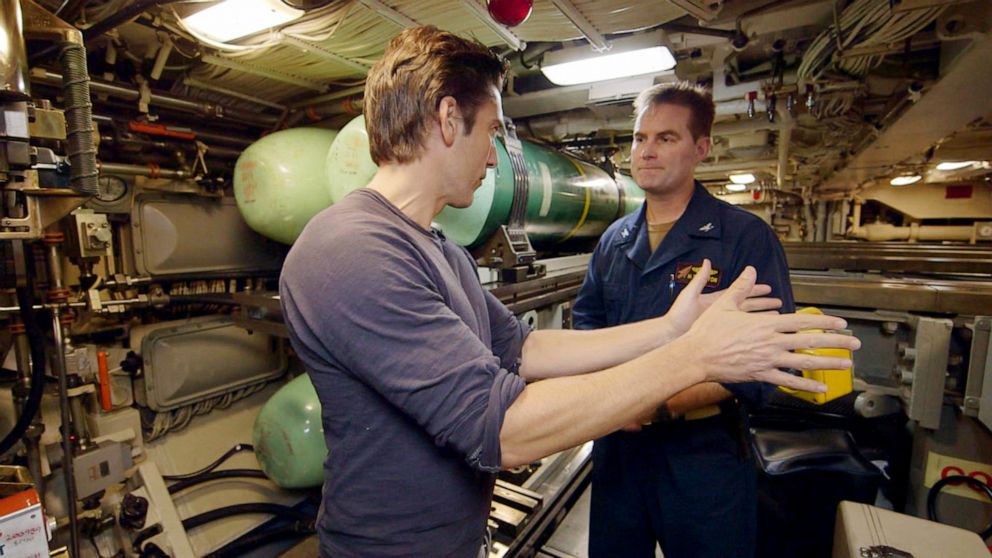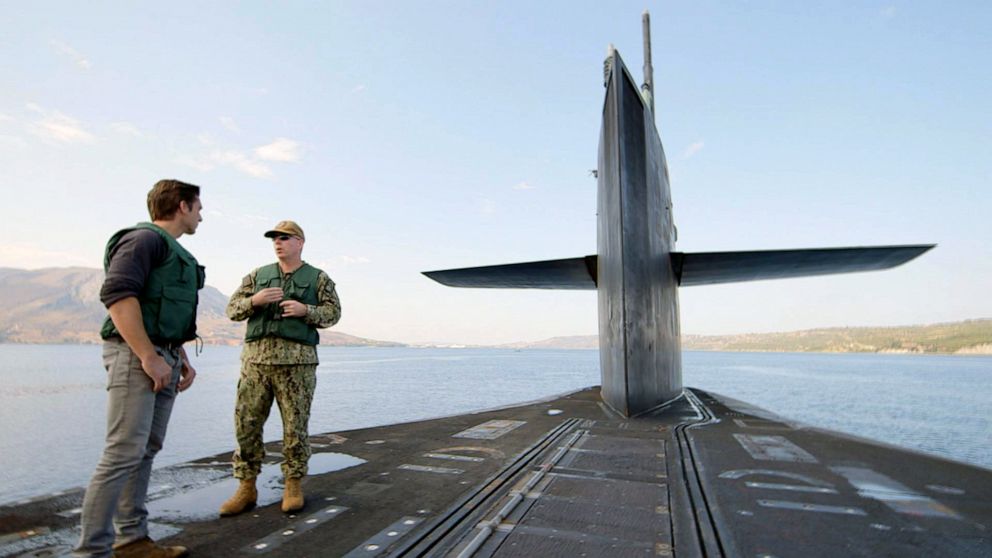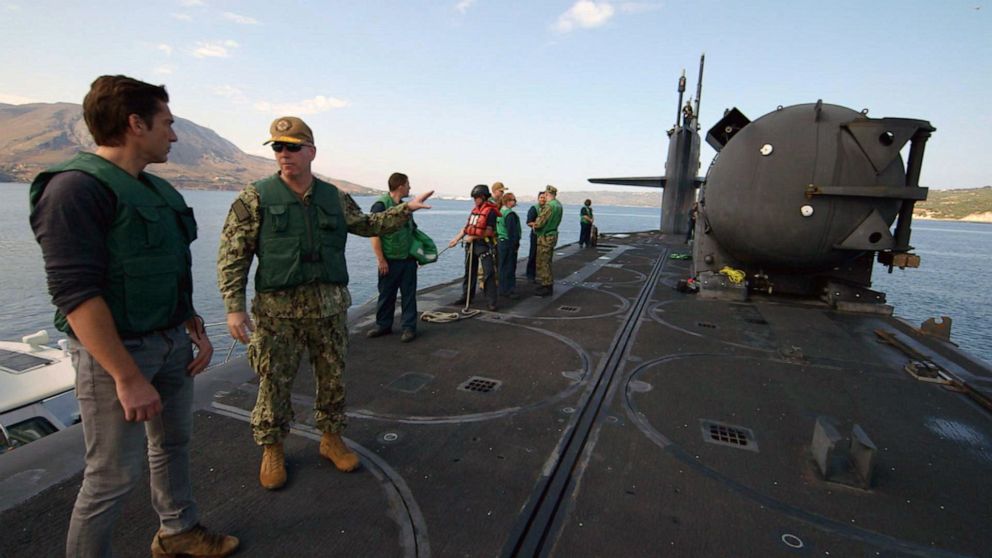US Navy rear admiral to ABC News' David Muir: 'The Russians are very active and we're active with them'
The submarine, with more than 100 Tomahawks, was in the eastern Mediterranean.
Deep in the waters of the eastern Mediterranean, the USS Florida lurks, with its steady, "silent eyes."
"Do you have company here in the Mediterranean?" asked ABC News anchor David Muir who was given rare access recently as he spent 24 hours traveling with the crew aboard the submarine.
"We do have plenty of company. The Russians are very active and we're active with them," said U.S. Navy Rear Adm. William Houston, who is currently serving as deputy commander of the U.S. 6th Fleet.
The USS Florida -- made of 18,000 tons of American steel -- is a nuclear-powered U.S. Navy guided missile submarine, with 160 on board.

During the visit, Houston showed Muir, the anchor of "World News Tonight," the location of the Tomahawk missiles. The USS Florida has more than 100 Tomahawks at the ready.
"And how many Tomahawks are we sort of standing on, right here?" Muir asked.
Watch MORE of David Muir's rare access aboard the USS Florida on "Nightline" TONIGHT at 12:35 a.m. ET on ABC
"Right now, seven, seven Tomahawks," Houston said. "You're literally standing 10 to 20 feet from an operational nuclear reactor."
The submarine is a maze of narrow hallways and hatches. The sailors even sleep between the missiles.
Inside the control room, as the submarine descended more than 600 feet beneath the surface of the sea during Muir's visit, the sailors moved the sleek behemoth as carefully and as quickly as possible.
It was precision work in the waters of the eastern Mediterranean. The sailors have to be ready for anything at a moment's notice.
"We've put this submarine right in this eastern portion of the Mediterranean to counterbalance the Russia buildup in Syria," Houston told Muir.
The U.S. said they are aware the Russians are trying to send a message.

"The Russians have demonstrated their willingness to use missiles from submarines. They did it from the Black Sea, into Syria, and now the Russians are here in the Mediterranean?" Muir asked.
"Yes," Houston said. "They absolutely are, and we're watching them very, very closely. There's really not a day where we're not watching them every single day."
"Are they watching us?" Muir asked.
"I think they'd like to watch us," he said.
In fact, the Russians recently showed their own underwater muscle in the Barents Sea and just days ago tested their new sea-based ballistic missile.
"But it's not lost on anyone what we've seen from the Russians in just the last week and a half?" Muir said.
"Absolutely," Houston said. "That's one of the reasons why we're here."
We've put this submarine right in this eastern portion of the Mediterranean to counterbalance the Russia buildup in Syria.
At night, Muir watched as sailors used a periscope with an infrared camera above the water and he later was able to get close to the submarine's nuclear reactor, though it was sealed off.
"We can operate more than 90 to 120 days submerged, and the reason is because that reactor gives us all the power we need," Houston said.
Houston told Muir that the submarine had only been fueled once. The nuclear power also produces oxygen on board while under the sea, he said.
The sailors said that the submarine breaks down demineralized water into oxygen and hydrogen, making twice as much hydrogen as oxygen. Then, the hydrogen is sent overboard.
The USS Florida is also equipped to be ready for U.S. Special Operations Forces and Navy SEALs to board at any time -- their weapons are already on board.
There is also one more powerful weapon the submarine carries as well: the torpedo. The submarine has eight of them on board and one is already loaded.
"As a captain you always wanna be ready," said Capt. Seth Burton, the commanding officer of the USS Florida Gold crew.

"You just look at the region, and you've got ISIS in northern Africa. You've got what's going on, on the Turkey-Syria border right now. The fact that you're here, in the Mediterranean, does that give you a set of silent eyes for the U.S.?" Muir asked.
"Absolutely," Burton said.
"And the Russians have found a way to signal to you, 'We're here, in the Mediterranean, too,'" Muir said.
"Oh, yeah, definitely. They're, they're here," Burton said.
"And do you let them know that you know they're here?" Muir asked.
"That's why I'm here," Burton said.
The USS Florida was on a classified mission Monday.
"Nobody knows where it's at in the Mediterranean at any one time," Houston said.
ABC News' Luis Martinez contributed to this report.




